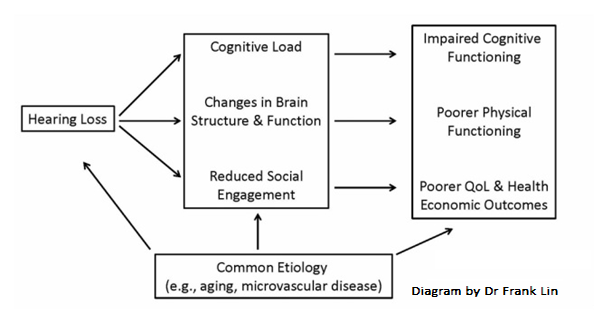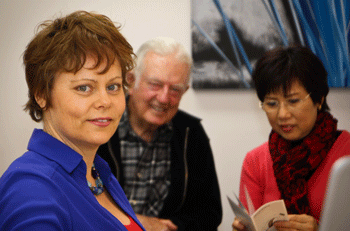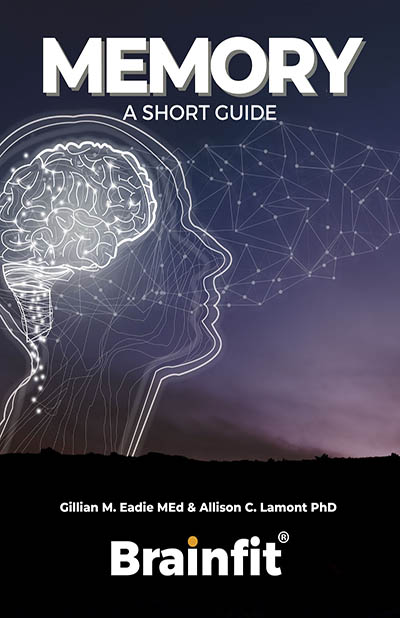Hearing loss is very common and it affects people of all ages.
 Main causes include hereditary factors, noise exposure, trauma and ear disease. And, of course, age.
Main causes include hereditary factors, noise exposure, trauma and ear disease. And, of course, age.
Hearing loss is usually gradual. In the beginning, it takes away the beginning of the sentence, the little details and the punchline. With time hearing loss increases mental fatigue as you concentrate harder just to follow along. Your confidence erodes as you are no longer sure about what was said. You feel embarrassed about missing details or having to ask for repeats too often.
Over time, hearing loss causes changes in behaviour,
- environments are chosen where it is easier to hear
- relationships change as everyone adapts to the fact you don’t hear well
- people often socialise less which can lead to less overall physical activity
- Hearing loss also links to memory loss and cognitive decline.
Hearing loss is invisible and sneaky.
As hearing changes, we adjust.
Gradually it affects personality and relationships.
Hearing loss changes us over time. Maree O’Sullivan
Hearing and Cognitive Decline
In 2013, Frank R. Lin, MD, Ph.D observed 1,984 adults over the course of six years, tracking the progression of hearing loss in relation to cognitive function. He found that hearing loss is a factor in loss of mental acuity in older adults.
- those with more severe hearing loss had a greater likelihood of developing a cognitive disorder, and an increased decline in mental function.
- even those with mild hearing loss were more likely to experience cognitive difficulties like memory changes, dementia and increased falls.
The exact link between hearing loss and cognitive decline is not yet fully understood; a possible cause is the increased “cognitive load” caused by the brain being overwhelmed by demands on its limited resources.
When close concentration is needed to follow a conversation, there are less cognitive resources for other things like memory and maintaining balance.

Image from:2015 Understanding BrainHearing™
“Communicating when you have a hearing loss, takes up lot of brain-power. It’s a bit like a computer that runs more slowly when there is a large program running in the background.” says Maree O’Sullivan, Audiologist.
“Declines in hearing abilities may also accelerate gray matter atrophy and increase the listening effort necessary to comprehend speech… Hearing aids may not only improve hearing but preserve the brain,” said Dr. Frank Lin, Associate Professor of Otolaryngology-Head & Neck Surgery, Geriatric Medicine, Mental Health, and Epidemiology at Johns Hopkins.

As evidence continues to mount that hearing loss is a contributing factor in the development of memory loss and dementia, ignoring hearing loss may have profound consequences. On average, people wait ten years before they seek treatment for hearing loss.
“Considering early diagnosis and medical intervention of hearing loss slows the progression of dementia and Alzheimer’s disease, it is more important than ever for patients to get their hearing loss treated sooner rather than later,” said Maree O’Sullivan.
 By Audiologist, Maree O’Sullivan
By Audiologist, Maree O’Sullivan
B.Sc, M.Aud (Hons), Dip.Bus, CCC, MNZAS





My memory loss and my hearing loss seem to have gone hand in hand over the last few years so what you have said makes real sense to me. I have been wearing hearing aids for about 10 years but recently my hearing has further deteriorated – and so has my memory. I would love to have it otherwise !
It is so true what you say about hearing loss and loss of cognitive ability and hearing aids can be a real pain!! What I would like to know is there anything that can be done to help those with auditory nerve damage due to pernicious anaemia? The aids do increase sound but not clarity and straining to hear exactly what people actually say can be very difficult and stressful. I wish people didn’t mumble all the time and I am sure you have heard that before!!
Most interesting.
Hi there,
Thanks for your comment. It sounds as if you have a very specific hearing challenge, that can not be accurately answered in this type of forum. Have you discussed this question with your audiologist?
There are some other types of technology that can help reduce the effect of hearing over distance using a remote microphone close to the mouth of the speaker. The right solution would depend very much on getting a clear understanding of the effects of your hearing loss then coming up with the best solution to help you (which may not be adding more technology).
My suggestion is to go back to your audiologist for further discussion.
Regards
Maree O’Sullivan (Audiologist)
I have found that my memory seems to be failing and believe it is because I put so much effort into working out what people are saying that I don’t remember what they have said. This article makes sense to me as it says what I believed was happening. I alos agree with a comment that hearing aids make things sound louder but I too struggle to gain clarity. Wearing my aids leaves me feeling confused and my head thudding. I am aged 53 and was given aids aged 40. I confess I seldom wear them due to how they leave me feeling, plus they irritate my ear drums.
Hearing aids have improved so much in the past few years – would you consider visiting your audiologist gain to find out what your options are? I am certain the problems you mention can be overcome. Your memory will thank you for it!
Hi there,
Thanks for your comment.
I agree with Gillian, it sounds like a visit back to your audiologist is be needed. It sounds like you have not adapted hearing sounds again through you hearing aids. This can be a process that takes a little while, especially for people who have more hearing loss.
How we help you adapt to hearing aids:
We need to work out how much sound you need to compensate for your hearing loss then turn the hearing aids down – possibly quite a lot.
In the beginning, you will hear sounds that you have not heard for a while. They will help you hear the consonants (ie: s, t th and k) – the beginning and ends of words. You will also hear other environmental sounds “noise” that you have not heard recently – birds, clocks, tree blowing in the wind etc.
Next we ask you to wear you hearing aids as much as you can – from the time you wake up in the morning until you go to bed at night. This will help you to get used to hearing the new sounds and to create a “new normal” for hearing quiet sounds.
At first you may find it tiring, this is because you will need to process a lot more auditory information than you are used to. If you feel tired, just take the hearing aids out and have a rest, then put them back in, in a few hours. Most people find it comfortable to wear them all day, every day within a week.
The more you wear the hearing aids, the less you will notice non voice sounds or “background noise”. You will hear other noises all the time so your brain will stop thinking they are interesting or unique. Over time, you will still hear them but they will stop jumping into your consciousness.
I suggest that people think of this time as their “hearing adventure” as they identify sounds around them, then accept the new sounds as “normal” – a new normal.
Often hearing aids can be set to gradually turn up over time so the very slowly get clearer, the change is so small you do not notice it. They will turn up until they get to the right level to compensate for your hearing loss. If the hearing aids cannot be programmed to turn up automatically, we would see you again in the clinic and do it for you there.
Often hearing gets worse gradually over time and adaption becomes more of a process. It is worth doing it sooner rather than later.
I hope this is helpful.
Cheers
Maree O’Sullivan (Audiologist)
I do not have hearing prob thank goodness but a friend does. He has aids but mostly doesn’t wear them. They need adjusting and he doesn’t see it as important but…..it becomes harder and harder to connect with him and he becomes more socially isolated. I also notice that he is not as sharp as he was memory wise so all that is said in the article I absolutely agree with. I will give it to him to read….he might even go back to his audiologist!
What I read was extremely helpful in answering many unanswered questions I have rolled over in my mind for years
I have a severe hearing loss as well as tinnitus in center of my head 24/7 for at least 40 years
In memory retention, especially when reading factual info and trying to remember such info but can’t really, has me.
But reading your articles and others who have similar disabilities, sadly gives me comfort
Thx for giving me this moment of expression
No one understands our
Hearing disabilities because it CAN NOT BE SEEN!
We don’t use a wheelchair or wear a cast or are blind with a white cane to get immediate consideration from others!!!!
Can the use of hearing aids improve memory or does it just help to slow worsening?
Hello there
When you cannot hear well, much of your cognitive reserve is devoted to trying to interpret what you can hear. Information may be half-heard or incorrectly heard. Removing that barrier with hearing aids will certainly allow your brain to process more effectively. Hearing aids may not actually improve your memory as such but will give the memory process more accurate information to work with. Your memory does not need to ‘worsen’. Paying attention is the key!
Hi
My son who is now 21 was born premature at 34 weeks and as he was growing had a lot of ear infections that caused scarring. He also had problem at school with his spelling as he wasn’t hearing sounds very well which to this day still has problems.
We were told when he was around eight that he had short term memory loss and hearing aids would not help him.
He still has a problem with his hearing on and off and has tinnitus, any suggestions
Hi Jo- Anne,
It is hard to offer a clear solution without a full assessment of what is going on. I recommend you make an appointment with an Audiologist for a diagnostic hearing test. This will identify any residual hearing loss which may (or more commonly, may not) have been caused by the scarring.
He could have an assessment for auditory processing. If processing is identified as an issue there is technology available that may help him in difficult listening environments. It is definitely worth following up on this.
Hi!!
My father is aged 63, His Left year had profound hearing loss 5 years back and the right ear’s hearing gradually declined between moderate and profound hearing loss. Now the symptoms are like episodes of Tinnitus, Varying hearing loss where some days he can hear well and days when he can hear nothing. His Memory has deteriorated but I would say its more specific to names of the things and people. He would not be able to recall things like if I tell him “Mike asked me to call you”, his general first answer would be.. “who Mike ??” Or if I use a thing’s name that we rarely use in a conversation, he would not be able to easily recall what that thing is.
We have been to a lot of doctors who recommend hearing Aids and when we visit audiologists for a trial and try some hearing Aids 8 channel, 16 channel, He complains of hearing only noise at an extremely high level that triggers head ache and tinnitus and when we reduce the hearing aids volume he can hear nothing. A few audiologists claim that a hearing aid wont suit him. We are so confused with what to do. The health is deteriorating and the hearing too. Please suggest.
Thanx in Advance
Manas
Hello Manas and thank you for writing. This is a difficult situation for your father and I see that you have already tried to have a complete investigation. From a memory point-of-view, it may be he isn’t really hearing the information to start with and it is easier to say ‘who’s Mike’ than to struggle to interpret the sounds he can hear. An audiologist would not be able to make a comment in this column without assessing him, I am sure.
Processing partially-heard information is a real challenge, mentally – have you considered having a neurologist examine your father? Expert knowledge is increasing all the time and there may be other ways that the issue could be approached? Do let us know how you get on and I am only sorry that we are not able to bring you any instant answers here.
This article is spot on. Our 16yr old son starting losing his hearing in both ears at the age of 8. At this point he was suited with hearing aids in each ear. By the age of 12 he was completely deaf in his right ear and profoundly in his left. During this time we did notice slight memory loss and he fell behind in school. For Highschool we chose to move to a community that had a Private Christian Highschool with 1/3 the students than the schools in our area. This has been amazing. He had a Cochlear Implant for his right ear at the age of 13 (it took 8 months to get the surgery) the CI has been a blessing for his confidence!! We have noticed the memory loss become a bit more evidently we simply find that we have to remind him constantly to do small things. For example, this morning he finished his breakfast and we asked him to take the plate to the sink and take your Vitamins. He took his plate to the sink and walked by the Vitamins. My suggestion to parents and children of family or friends that have a deaf or hard of hearing person in your life is to 1. Have patience which comes from love. 2. Only request 1 or 2 items to recall at a time(1 or 2 directions at a time). 3. Have check lists or daily to do lists. Our son thrives and succeeds on accomplishing his checklist. Thank you for the article. Much love to all that have someone in your life that is deaf or hard of hearing. Never show frustration, believe me they are more frustrated than you. God Bless
Thank you so much for your insight and advice, Jeff. Understanding the effects of hearing loss on the individual is an important first step. The direct link between hearing loss, memory and brain processing is, at last, being understood more clearly in practical terms. Your story will be helpful for others also so thank you for sharing it with us.
My name Arvind and I am 31 Male. I lost my hearing power from left ear when I was 13. Doctors mentioned that there is weakening of some nerve due to which there was complete 100% hearing loss. I never faced or realized about the memory loss or forgetting things. But obviously, I face challenges in hearing in the crowd etc. Recently I have been observing that I tend to forget things or unable to remember. I am not sure its due to lack of attention I pay or due to some valid medical reason. I request expert’s opinion on the same. Kindly advice.
Hi Arvind,
Thanks for your comment. When you have hearing loss your brain has to work a lot harder to communicate. You will be using a lot more effort to follow conversation than someone with normal hearing. This can be exhausting and by the end of the day, you may have auditory fatigue. It is hard to take on new information when your brain is working so hard (like a computer running out of RAM). Perhaps having a hearing test and discussing the result with your audiologist may shed more light on your individual situation.
Maree O’Sullivan Audiologist at Auckland Hearing
Ph 09 525 0522
I am 76 and have been wearing AIDS for about 20 years. Recently – last few years – I feel that my brain is not processing what I hear quickly enough. If someone is telling a story, I always miss the punchline. Admittedly, the storyteller tends to speed up towards the punchline, but the other listeners seem to pick it up
This is a very common experience because so much of your focus and attention is being directed to just hearing the words, your concentration on the meaning of what you are hearing is compromised. Keep practising though – even with radio stories, random conversations and so on. Being aware of an issue is the first step in overcoming it.
Why do hearing aids costs so much. I am in the process of getting new set as I lost one of the pair . I have had so much trouble getting the correct sound and volume and clarity for affordability that it’s ridiculous .
Debbie